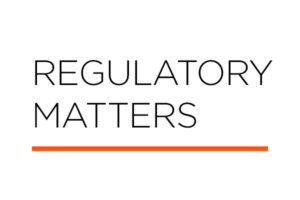
On August 26, 2021, the Singapore Exchange Limited through the Singapore Exchange Regulations (SGX RegCo) released two public consultation papers relating to climate and diversity along with a common core of ESG metrics. Through the consultations, SGX RegCo will be reviewing potential changes to Singaporean corporate governance practices which may influence how companies engage in climate, sustainability and ESG reporting, as well as diversity practices.
You can download Glass Lewis’ submission here:
After review, Glass Lewis is mostly supportive of the proposed changes for how companies would report on climate, sustainability and ESG reporting. However, we believe there is room for further improvement in diversity.
Some of the positive changes include:
- Alignment with Taskforce for Climate-related Financial Disclosures (TCFD) recommendations on climate-related disclosures would provide improved disclosure on climate and sustainability practices that are being recognized globally. Likewise, the timeline as proposed would enable issuers to become familiar with TCFD disclosure practices over a reasonable timeframe.
- The inclusion of assurance as a part of the disclosure process for sustainability reporting would further strengthen confidence in reporting process.
- The inclusion of director training in sustainability would help to increase the awareness and importance of this topic among boardrooms.
- Inclusion of diversity policies in annual reports along with setting of diversity policies by issuers would enable shareholders and relevant stakeholders to better understand how an issuer intends to achieve a diverse board, which includes gender, along with director skills and experience.
However, in other areas, we believe there is room for further improvement and/or adjustments.
- For TCFD disclosure, we believe that climate and sustainability reporting should be applicable to all industry sectors instead of an industry-specific approach, in line with the approach adopted in other markets.
- With regard to board diversity, we believe that Singapore should aspire to increase board gender diversity to 30% sooner than by 2030. Neighboring Malaysia has already moved to set the 30% threshold for all listed issuers, suggesting that this goal could be achieved over a shorter period of time.
- On the use of specific ESG metrics, while Glass Lewis is not necessarily opposed to the metrics or the proposed data portal, we believe the SGX may want to also engage with issuers to better understand which metrics would be material to specific industries. Likewise, we think that metrics should also extend to executive remuneration practices.
Overall, we view the potential changes as important steps for Singapore-listed issuers to provide clear climate and sustainability reporting. Likewise, through the eventual development of ESG metrics, this could harmonize disclosure practices. Lastly, an increased focus on board diversity could work to promote more diverse boards that better reflect Singapore’s diverse identity and improve its standing among Asia Pacific markets as a leader in this area of corporate governance.
